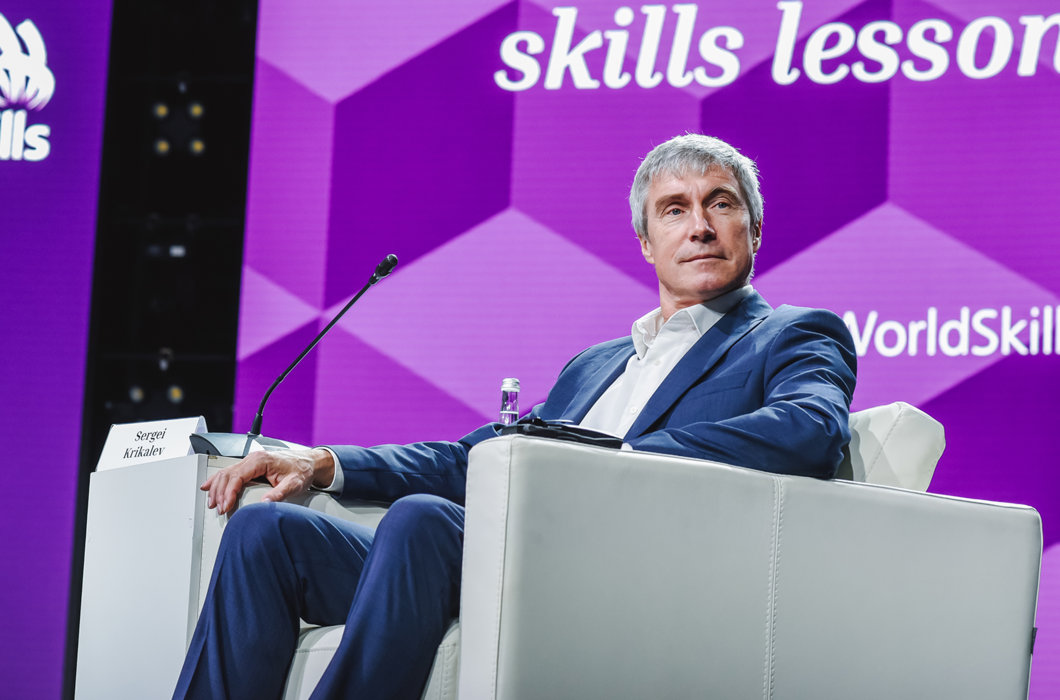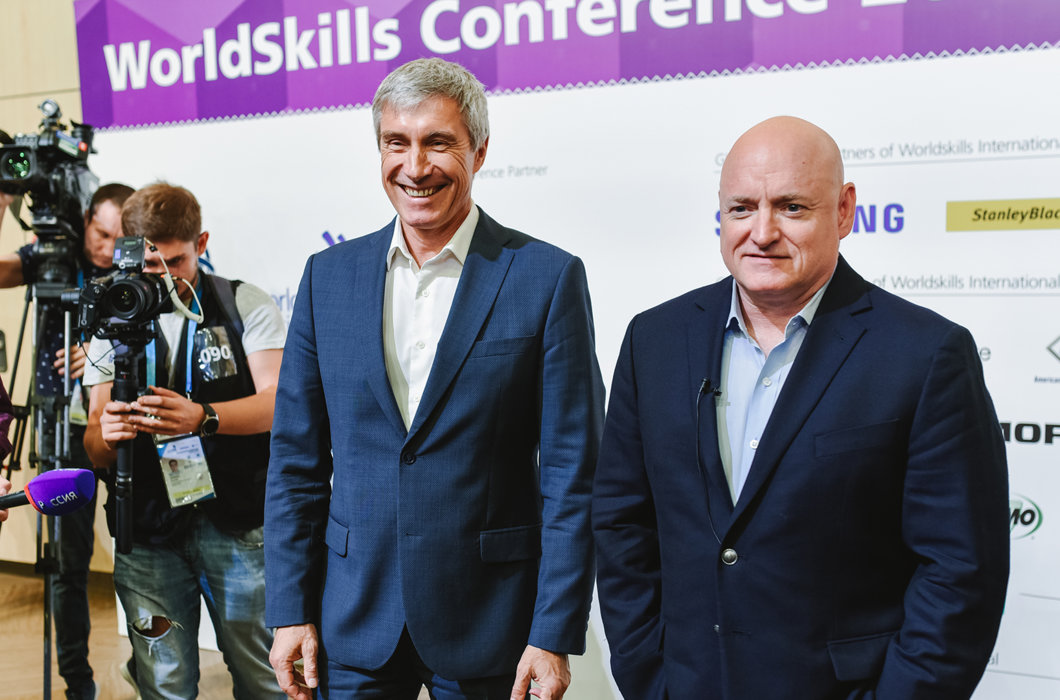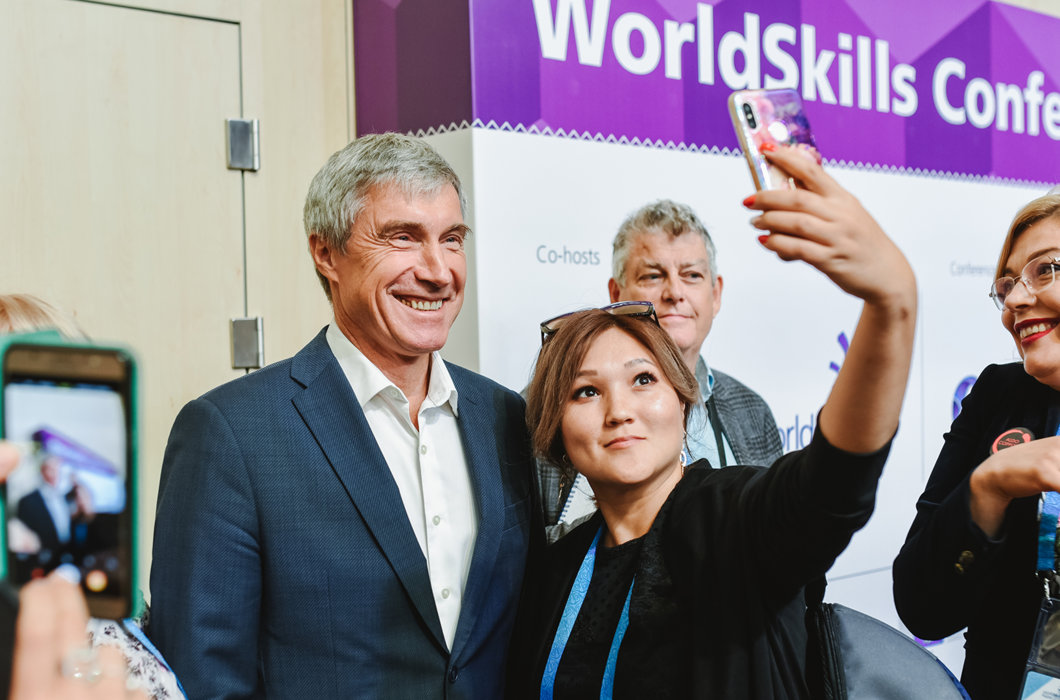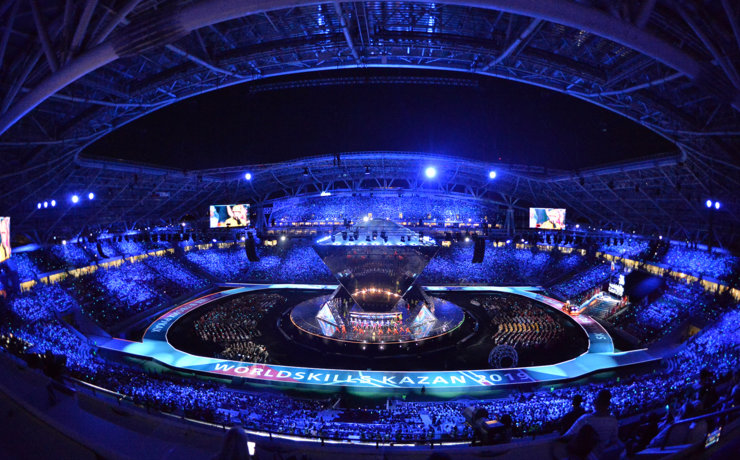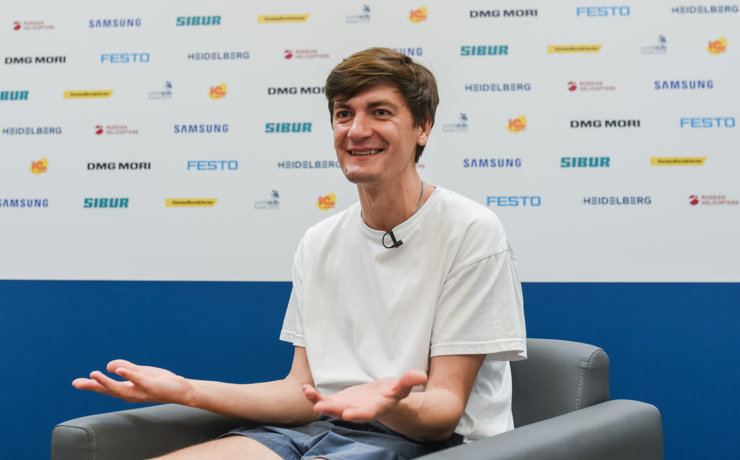Sergei Krikalev is a Russian cosmonaut and executive director for manned space programs of Roscosmos State Corporation. Sergei Krikalev’s career spans an entire epoch in the cosmonautics from his first flight in 1988 to his sixth flight in 2005. Working as part of international crews at the Mir station and the International Space Station (ISS) he was among the pioneers who “settled in” the new “space house” in the Earth’s orbit. Sergei Krikalev was also the first Russian cosmonaut to fly an American shuttle. From 2009 to 2014, Sergei Krikalev was head of the Yury Gagarin Cosmonaut Training Centre.
He received us after his panel at the WorldSkills Conference 2019, “The final frontier: skills lessons from the stars”, where he shared the stage with Scott Kelly, a NASA astronaut. He told us about his most thrilling experience in space, survival, and the skills future astronauts must require.
- You have visited the skills areas at the 45th WorldSkills Competition, what are your impressions?
- It is interesting for me to watch the competition, since I have been involved in many professions presented here. Being an astronaut requires mastering a vast number of skills: hydraulic systems, brazing, operating air and water treatment plants, or first-aid. Knowing how to cook is more important in space than in Earth. And all of this should be done in a zero-gravity environment. It is wonderful that the Competition is designed for the youth, and teenagers. The earlier one starts accumulating skills, the more skills you will have by the time you make your final career choice.
- What was your own career path?
- As a mechanical engineering student, I studied rocket engineering. Then, I became a pilot and got an aircraft maintenance certificate. Altogether, this entire experience laid the foundation for a job in the space industry.
- Soft skills are becoming more important in the modern world. Are they required for an astronaut?
- Of course, they are! In a limited space, so many things can make one feel uncomfortable. And it is essential to be able to adapt and focus on the things that really matter. Teamwork skills are paramount.
- I believe you have been through numerous stressful situations. How did you cope?
- It takes training to reduce the impact of stress. Training set specific “traps”, simulated scenarios. A trainee is expecting an emergency and is focused and nervous, but nothing is happening. The trainee does not know when or whether the emergency will actually happen. In such a situation, one should be able to keep calm. Moreover, preserve the ability to talk normally and stay focused. In case of failure, an astronaut must report the situation in real time to ground control, observe what is happening around, and take the necessary troubleshooting measures. All of these at the same time.
- So, an astronaut must be able to process information fast?
- And comprehensively. Our training involves survival tasks in remote environments, where there is no rescue ⎼ in open sea, mountains, or forests. On top of that, you need to add the complication of the suit. We have to use our skills according to the external factors and make the right decisions. For that, one should be good at biology, physics, chemistry, both in theory and practice and in various combinations.
- Is risk-taking a routine for you?
- Taking risk is good when it is reasonable, based on a thorough analysis and evaluation of its implications. Taking a spontaneous risk in space is dangerous.
- What was your biggest mistake?
- I may say, I made the biggest mistakes while training on Earth. That’s why I haven’t made them in space and that’s why I can talk to you right now.
- What impressed you in space?
- It is difficult to describe the incredible feeling of the flight. I guess, the strongest impression was seeing the gigantic International Space Station soaring in zero-gravity for the first time. It was difficult to believe that, in fact, it moved at 8 km/s.
- What experience from space have you been able to apply on Earth?
- The International Space Station is a closed environment. There, moisture from the air is processed into drinking water, air recirculates, waste is minimized... Many of these technologies can and need to be used here.
- How noticeable is the technological progress in the space industry?
- Above all other things, it’s the ever-improving equipment. It's something very interesting; it pushes our life forward. New flights, new experiences, new ideas, and new projects. I've heard more than once that aircraft maintenance is seen as a messy labour: screwdrivers, rags… But it has not been like this for a long time now. It's now telemetering, programming, automation.
- Why are practical skills important?
- The world is getting more and more technology-oriented. People benefit from technology without knowing how it actually functions. It’s far more interesting to be part of their invention process. I would like those young guys to shift to other skills after having mastered another one. That’s the path to become an astronaut.
Press Office of WorldSkills Kazan 2019 Competition Organizer
